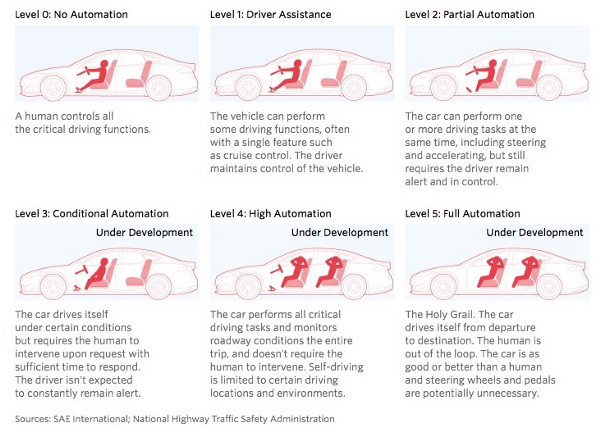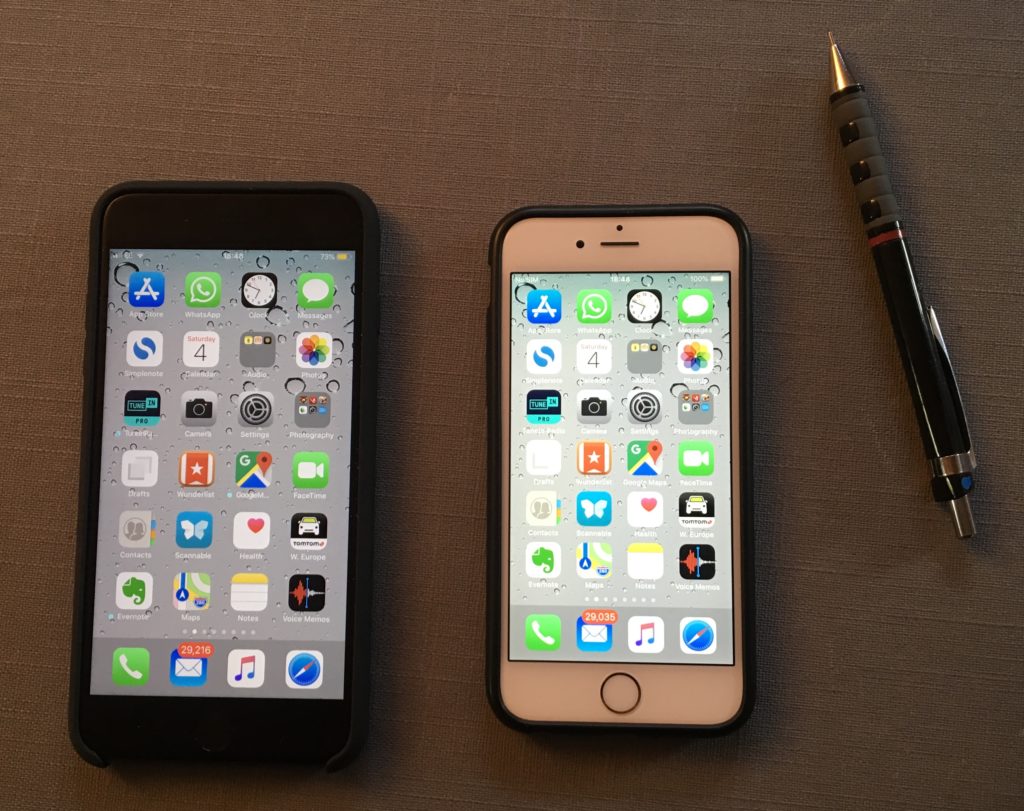Lovely, illuminating explanation.
Category Archives: Technology
Booming tech and rising inequality: correlation or causation?
This morning’s Observer column:
Here is one of the great paradoxes of our time. The world is dominated by a few corporations that are among the most profitable companies in the history of capitalism. In the US (the home of these giants) and in the UK (an enthusiastic vassal state), parts of the economy are booming and employment is at record levels. And yet, in the middle of this astonishing prosperity, inequality is at levels not seen since the period before the first world war. In the US, the share of total income going to the top 1% of the population is now back to the level it was in the 1920s. And in the UK, more than 4 million people are trapped in deep poverty.
Since this catastrophic rise in inequality seems to be correlated with the rise of the tech industry, it’s tempting to see a causal link between the two. Tempting, but too simplistic. For while digital technology has been a central factor in what’s happened, it’s only a part of the story. More often, it’s been an enabler of other forces rather than a prime mover.
The biggest force reshaping our world has been globalisation…
Facial recognition technology — to ban or regulate it are the only options
This morning’s Observer column:
On 18 July, the House of Commons select committee on science and technology published an assessment of the work of the biometrics commissioner and the forensic science regulator. My guess is that most citizens have never heard of these two public servants, which is a pity because what they do is important for the maintenance of justice and the protection of liberty and human rights.
The current biometrics commissioner is Prof Paul Wiles. His role is to keep under review the retention and use by the police of biometric material. This used to be just about DNA samples and custody images, but digital technology promises to increase his workload significantly. “It is now seven years,” observes the Commons committee, “since the 2012 high court ruled that the indefinite retention of innocent people’s custody images was unlawful and yet the practice is continuing. A system was meant to have been put in place where any custody images were kept for six years and then reviewed. Custody images of unconvicted individuals at that point should be weeded and deleted.”
But they haven’t: photographs of innocent people remain on the police national database…
Networked totalitarianism, courtesy of Western tech companies
Nice investigation by The Intercept:
AN AMERICAN ORGANIZATION founded by tech giants Google and IBM is working with a company that is helping China’s authoritarian government conduct mass surveillance against its citizens, The Intercept can reveal.
The OpenPower Foundation — a nonprofit led by Google and IBM executives with the aim of trying to “drive innovation” — has set up a collaboration between IBM, Chinese company Semptian, and U.S. chip manufacturer Xilinx. Together, they have worked to advance a breed of microprocessors that enable computers to analyze vast amounts of data more efficiently.
Shenzhen-based Semptian is using the devices to enhance the capabilities of internet surveillance and censorship technology it provides to human rights-abusing security agencies in China, according to sources and documents. A company employee said that its technology is being used to covertly monitor the internet activity of 200 million people…
Usual story. When it comes to it, there is no technology that Western tech companies won’t sell to the Chinese.
Guess who benefits from Automation 2.0
This morning’s Observer column:
We have now lived through what one might call Automation 1.0. The paradigmatic example is car manufacturing. Henry Ford’s production line metamorphosed into Toyota’s “lean machine” and thence to the point where few humans, if any, are visible on an assembly line. Once upon a time, the car industry employed hundreds of thousands of people. We called them blue-collar workers. Now it employs far fewer. The robots did indeed take their jobs. In some cases, those made redundant found other employment, but many didn’t. And sometimes their communities were devastated as a result. But GDP went up, nevertheless, so economists were happy.
Now we’re embarking on Automation 2.0…
Why has the US got it in for cryptographers?
Ross Anderson is one of my most remarkable academic colleagues. He’s one of the world’s leading experts on cryptography, a Fellow of the Royal Society and a thoroughly good egg. His landmark book Security Engineering: A Guide to Building Dependable Distributed Systems (which is now going into a third edition) has recently been inducted into the cybersecurity canon, but Ross’s application for a US visa to attend the gala awards ceremony has been mysteriously flagged for a four-month “administrative review” by the US immigration authorities. So he decided to give his acceptance speech in Cambridge and relay it via YouTube.
Interestingly, another world expert on cryptography, Adi Shamir, (he’s the “S” in “RSA”) was denied a visa to visit the USA to participate in this year’s RSA conference. Shamir is a recipient of the Turing Prize — computer science’s answer to the Nobel Prize. And other attendees at the conference reported that other crypto experts have been denied access to the US.
So what’s going on?
UPDATE Ross has made the second edition of his book available as a free download from here. In the same place you can also find advance drafts of several of the new chapters of the forthcoming third edition.
The life of a tech analyst
Nice quote from an essay by Benedict Evans:
There’s an old joke that the career of an analyst progresses from Word to Excel to Powerpoint. That’s pretty much what’s happened here over the last 20 years: first we discussed what might happen (“imagine if everyone had a phone!”), then we tracked the numbers of what was happening, and finally we draw diagrams and bullet points of what that means. That’s where we are now – we try to work out what it means that almost everyone has a phone or a smartphone.
But this also means that now we go back to the beginning: I’m not updating my smartphone model anymore. The next fundamental trends in tech, today, are probably machine learning, crypto and regulation. I can write about those, but it’s too early to make charts.
Getting to autonomy
Apropos my Observer column, this from Frederic Filloux:
I would love to tell my Tesla to come and pick me up at home in Palo Alto and take me to the Sutter Street parking garage in San Francisco, “any level will be fine”, without intervention. But when will we get there?
If you believe Musk, it’s 2020. If you believe Chris Urmson, Google’s Director of Self-Driving Cars from 2013 to late 2016, it’s going to take three decades or more, although it’s possible that Waymo will ignore Page’s wise Level 5 edict and come out with Level 3 or 4 for a client such as Audi, Mercedes, or BMW well before that. Can we learn to codify partial automation the way we codified MPG, speed, and emissions? Personally, I trust we will, perhaps helped by numbers such as fatalities or, less morbidly, frequency of driver intervention.
Elon Musk may be a pain. But he’s not nuts
This morning’s Observer column:
You don’t have to be a psychiatrist to wonder if Elon Musk, the founder of Tesla, is off his rocker. I mean to say, how many leaders of US public companies get into trouble with the US Securities and Exchange Commission for falsely claiming that they have secured funding to take their company private at $420 a share – and then get sued and fined $40m? Or can you imagine another CEO who deals with Wall Street analysts by swatting away questions about his company’s capital requirements as if they were flies. “Excuse me. Next. Next,” he replied to one guy who was pressing him on the subject. “Boring, bonehead questions are not cool. Next?”
The view from Wall Street is that Musk is too volatile to be in charge of a big and potentially important public company. The charitable view is less judgemental: it is that, while he may have a short fuse, he’s also a gifted, visionary disrupter. But even those who take this tolerant view were taken aback when he declared at a recent public event that he could see “one million robo-taxis on the roads by 2020”…
Size matters. (But so does speed)
Although I’ve been a relatively early-adopter (aka sucker) of tech gadgets for much of my adult life, I’ve generally been relatively slow to upgrade my mobile phones. One factor was that I moved from being on a mobile contract to buying the phones outright and choosing the mobile data deal that suited me best. (I make very few voice calls.) I had an iPhone 4 for years, and when I eventually moved to an iPhone 6 I kept that for years too, reviving it a year ago with a new battery. (It’s the one on the right in the picture.) But in recent years it’s become sluggish and I began to find it increasingly hard on my ageing eyesight. I resisted the temptation to move to an iPhone X for various reasons: the outrageous prices, for one; and, more importantly, I don’t like Face ID and find fingerprint authentication very convenient for the few security-conscious services that I use.
So I had more or less resigned myself to soldiering on with the 6. After all, it did the jobs I needed it to do. And if I needed to read, there was always my iPad. But then I had a conversation with a friend who’d also had an iPhone 6 for years and whose circumstances had recently changed. He’s been spending a lot of time in hospital in the last six months, and didn’t want to be lugging around a laptop, or indeed even an iPad. He’d found, though, that it’s very difficult to run a busy life on such a small phone. So he bought a used iPhone 7 Plus on Amazon.
Next time we met, he extolled the virtues of the bigger format. It made it much easier to browse and to use web-forms, he reported. He found it easier to keep on top of his (formidable) email load — which he would normally have managed on a laptop. And the phone was quicker — a lot quicker — than his iPhone 6.
I followed his example and bought an iPhone 7 Plus on Amazon. My conclusion: it was good advice. The phone came with a year’s guarantee. It has a much faster processor. Web browsing is easier. The camera is a lot better. My email response rate has improved. I make fewer typing mistakes. And I’m using my iPad less. There are still things it’s useless for — blogging, for example. But overall, it’s been a revelation. It’ll do me for a few years, I think.


